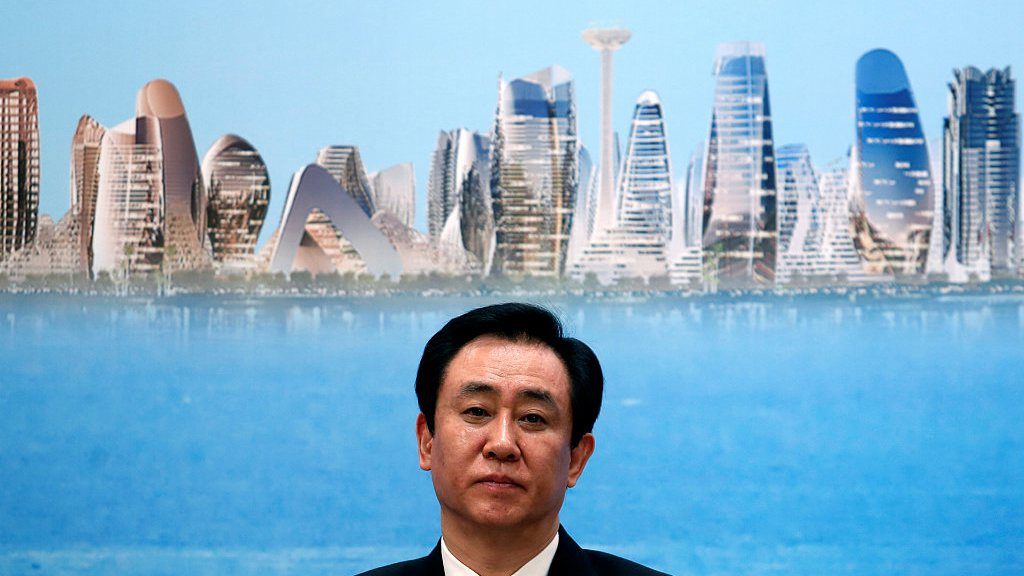
Company
14:00, 25-Jan-2019
Debt concerns weigh on 2019 property developer outlook
Nicholas Moore

Chinese property developers are gearing up for a challenging 2019, with high levels of maturing debt weighing down across the sector after years of rapid growth.
After 2018 saw a record number of bond defaults by Chinese firms, this year is expected to see more companies come under further debt pressure, particularly in the property sector.
This week alone has seen shares of Jiayuan International crash twice, plummeting by almost 90 percent overall, while fellow developer Evergrande on Wednesday sold three billion U.S. dollars' worth of bonds to raise capital amid growing concerns about its large debt pile.
Jiayuan shares collapse after chairman's mystery selloff
Listed in Hong Kong, Jiayuan International saw a record sales volume in 2017, as annual revenue skyrocketed by 87.7 percent.
Last week, shares in the company crashed by a similar margin, ending the trading day 80.6 percent down as investors fled over concerns about a maturing debt of 350 million U.S. dollars.
Share prices recovered after Jiayuan said the debt had been paid, before collapsing again on Tuesday.
Stock market regulators halted trading in the company after a 22 percent slide, triggered by news that Jiayuan's chairman Shen Yuxing and his wife had sold more than 90 million shares in the company during the previous week's crash.
The company issued a statement on January 17, saying its financial situation was “healthy” and its board was not aware “of any specific reasons for such price and volume movements”.
So why did the chairman reduce his stake in his own company, if the company's operations are normal? This is the question that is spooking investors and underlining a current sense of unease in the property sector.
Evergrande: Record profits, record debts
According to a study by Dealogic, Chinese property developers are sitting on 385 billion yuan (55 billion U.S. dollars) worth of onshore debt that will mature this year. China Daily reports that the “financial stress on Chinese developers is already high”, with weaker sales and fund shortages becoming “a more and more serious problem for real estate companies.”
China's three biggest developers – Evergrande, Country Garden and Vanke – have all got outstanding debts worth hundreds of billions of yuan, according to data provided by each company.

Evergrande Chairman Xu Jiayin is one of China's richest men, with a personal fortune of 34.8 billion U.S. dollars according to Forbes. /VCG Photo
Evergrande Chairman Xu Jiayin is one of China's richest men, with a personal fortune of 34.8 billion U.S. dollars according to Forbes. /VCG Photo
Evergrande is the most indebted of that group, and will see bonds of almost 11 billion yuan (1.62 billion U.S. dollars) mature this year, followed by over 36 billion yuan (5.32 billion U.S. dollars) in 2020.
The company in October already issued 1.8 billion U.S. dollars' worth of bonds, with Evergrande Chairman Xu Jiayin using his own fortune to buy one billion U.S. dollars' worth.
Evergrande's most recent data, for the first half of 2018, showed the company had 99 billion U.S. dollars of debt in total. Listed in Hong Kong, ratings agencies like S&P and Fitch have downgraded their outlook for Evergrande into junk territory.
Despite concerns about Evergrande's liabilities, the first six months of last year saw profits double for the developer, hitting a new record of 55 billion yuan (eight billion U.S. dollars).
Speaking in August 2018 at an earnings conference, Evergrande's Vice Chairman Xia Haijun said the company was slowing down land purchases in a bid to improve profits and tackle its debt.
Xia praised government measures on China's property sector for promoting “steady development” in the sector.

SITEMAP
Copyright © 2018 CGTN. Beijing ICP prepared NO.16065310-3
Copyright © 2018 CGTN. Beijing ICP prepared NO.16065310-3